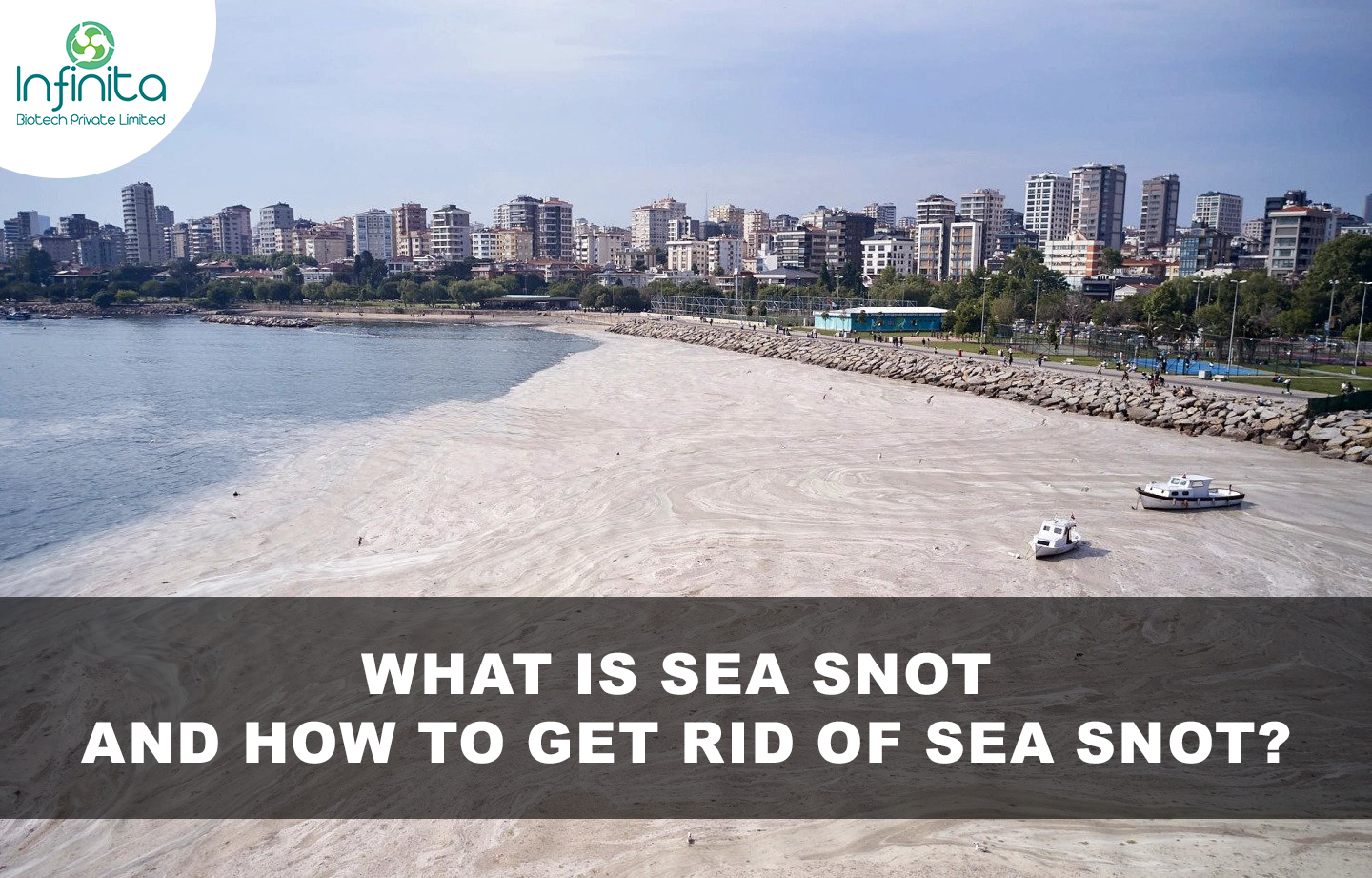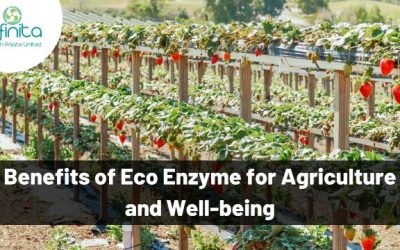
What is Sea Snot and How to Get Rid of Sea Snot?
Humans have done excessive damage to this planet and ruined the oceans and now harming the aquatic ecosystem havoc has started to occur around ocean water. This mucus-like thick substance is called ‘sea snot’ due to its bad odour and texture. The occurrence of sea snot around ocean water is a symptom of a severe global issue. Scientists and researchers around the world are worried, and numerous investigations are conducted to find out what sea snot is and how to get rid of sea snot.
What Is a Sea Snot?
Scientifically known as ‘Marine Mucilage’, sea snot is an accumulation of diverse organic materials including faeces and remains of dead plants and animals. It is formed when algae are clogged with nutrients. In simple words, sea snot is the combination of different water pollutants caused due to climate change. As the temperature of the weather is increasing because of global warming, Algae have to feast in warm weather which causes nutrient overload and water pollution is worsening this problem.
As per the scientists and environmental experts, climate change and excessive disposal of industrial and residential waste into the oceans cause the overproduction of phytoplankton, microscopic marine algae, and one of the significant reasons behind the occurrence of sea snot.
How Does a Sea Snot Harm The Environment?
The growth of sea snot that floats up on the ocean surface like brown phlegm is causing a severe menace to the marine ecosystem. Marine divers have reported that it has caused mass death to fish and also has damaged corals, sponges, and other aquatic organisms. Slowly and gradually, the sea snot is covering the ocean surface and has extended to 80 to 100 feet below the sea surface. If the authorities of the related region didn’t inspect and find a solution, it can cover the ocean surface causing major damage to the marine ecosystem.
If this situation continues for a longer period, it can result in poisoning fish, crabs, turtles, sea stars, corals, sponges, oysters, and other aquatic species. Apart from the aquatic ecosystem and life, the sea snot crisis is affecting the lives of fishermen as well. They have reported that sea snot gets collected and makes their fishing nets heavy so they can’t pull them out. Most of the time either the fishing net gets damaged or gets lost. Additionally, the sea snot makes the fishing net visible to the fishes, as a result, they stay away from the nets.
Is Sea Snot a Common Occurrence?
The occurrence of sea snot is caused by the due overgrowth of algae and other microorganisms as a result of increasing global warming. Therefore, it is a completely uncommon and serious matter to be concerned about. The formation of sea snot is adding more nitrogen and phosphorus to the environment. Excessive sea snot is hampering the food chain of aquatic species and can create a lack of oxygen for them. Moreover, with the combination of eutrophication, sea snot can be a reason behind the structural change to the ecosystem.
How to Get Rid of Sea Snot?
A big reason behind the problem of sea snot is the worldwide rise in water temperature, which is directly related to climate change and cannot be addressed by a single task force. Many experts have tried to find solutions for how to get rid of sea snot and believe that wastewater management might be an effective solution to the problem. Furthermore, we must restore all streams that flow into the sea. We must put a stop to pesticide contamination. Finally, we need a thorough investigation of pollution and the establishment of a pollution monitoring network in all streams and sources of wastewater flowing into the sea.
Biological treatment plants should be installed in all municipalities that discharge wastewater into the ocean. Phosphorus and nitrogen should be removed from industrial effluent. We require an industry that emits fewer pollutants and uses less water.
One of India’s leading multidivisional biotechnology companies, Infinita Biotech has made a crucial advancement in tackling the issue of marine mucilage. The company developed a significant solution ECOENZYME – SNOT to remove the sea snot. It is an effective and eco-friendly enzymatic solution for the hydrolysis of marine mucilage. ECOENZYME -SNOT controls the growth of microbes in marine mucilage and makes it harmless to the marine ecosystem.
If you need customised enzymes, get in touch with us.
The Basics of Soil Stabilization: An Introduction
What is Soil Stabilization? Definition: Have you ever wondered how builders manage to create rock-solid foundations for structures, even on unstable grounds? That's where soil stabilization becomes critical. At its core, soil stabilization refers to the process of...
Bio Enzyme Uses and Their Applications

What is Sea Snot and How to Get Rid of Sea Snot?
Humans have done excessive damage to this planet and ruined the oceans and now harming the aquatic ecosystem havoc has started to occur around ocean water. This mucus-like thick substance is called ‘sea snot’ due to its bad odour and texture. The occurrence of sea snot around ocean water is a symptom of a severe global issue. Scientists and researchers around the world are worried, and numerous investigations are conducted to find out what sea snot is and how to get rid of sea snot.
What Is a Sea Snot?
Scientifically known as ‘Marine Mucilage’, sea snot is an accumulation of diverse organic materials including faeces and remains of dead plants and animals. It is formed when algae are clogged with nutrients. In simple words, sea snot is the combination of different water pollutants caused due to climate change. As the temperature of the weather is increasing because of global warming, Algae have to feast in warm weather which causes nutrient overload and water pollution is worsening this problem.
As per the scientists and environmental experts, climate change and excessive disposal of industrial and residential waste into the oceans cause the overproduction of phytoplankton, microscopic marine algae, and one of the significant reasons behind the occurrence of sea snot.
How Does a Sea Snot Harm The Environment?
The growth of sea snot that floats up on the ocean surface like brown phlegm is causing a severe menace to the marine ecosystem. Marine divers have reported that it has caused mass death to fish and also has damaged corals, sponges, and other aquatic organisms. Slowly and gradually, the sea snot is covering the ocean surface and has extended to 80 to 100 feet below the sea surface. If the authorities of the related region didn’t inspect and find a solution, it can cover the ocean surface causing major damage to the marine ecosystem.
If this situation continues for a longer period, it can result in poisoning fish, crabs, turtles, sea stars, corals, sponges, oysters, and other aquatic species. Apart from the aquatic ecosystem and life, the sea snot crisis is affecting the lives of fishermen as well. They have reported that sea snot gets collected and makes their fishing nets heavy so they can’t pull them out. Most of the time either the fishing net gets damaged or gets lost. Additionally, the sea snot makes the fishing net visible to the fishes, as a result, they stay away from the nets.
Is Sea Snot a Common Occurrence?
The occurrence of sea snot is caused by the due overgrowth of algae and other microorganisms as a result of increasing global warming. Therefore, it is a completely uncommon and serious matter to be concerned about. The formation of sea snot is adding more nitrogen and phosphorus to the environment. Excessive sea snot is hampering the food chain of aquatic species and can create a lack of oxygen for them. Moreover, with the combination of eutrophication, sea snot can be a reason behind the structural change to the ecosystem.
How to Get Rid of Sea Snot?
A big reason behind the problem of sea snot is the worldwide rise in water temperature, which is directly related to climate change and cannot be addressed by a single task force. Many experts have tried to find solutions for how to get rid of sea snot and believe that wastewater management might be an effective solution to the problem. Furthermore, we must restore all streams that flow into the sea. We must put a stop to pesticide contamination. Finally, we need a thorough investigation of pollution and the establishment of a pollution monitoring network in all streams and sources of wastewater flowing into the sea.
Biological treatment plants should be installed in all municipalities that discharge wastewater into the ocean. Phosphorus and nitrogen should be removed from industrial effluent. We require an industry that emits fewer pollutants and uses less water.
One of India’s leading multidivisional biotechnology companies, Infinita Biotech has made a crucial advancement in tackling the issue of marine mucilage. The company developed a significant solution ECOENZYME – SNOT to remove the sea snot. It is an effective and eco-friendly enzymatic solution for the hydrolysis of marine mucilage. ECOENZYME -SNOT controls the growth of microbes in marine mucilage and makes it harmless to the marine ecosystem.
If you need customised enzymes, get in touch with us.
0 Comments
Submit a Comment
You must be logged in to post a comment.
CATEGORIES
- Agriculture Enzymes
- Animal Feed Enzymes
- Brewery Enzymes
- Cellulase Complex Enzymes For Cellulosic Ethanol
- Covid – 19
- Detergent Enzymes
- Disinfectants
- Distillery Enzymes
- Enzymes
- Enzymes for Biodiesel
- Enzymes For Ceramic Industry
- Enzymes for Cosmetics
- Enzymes for Crude Oil Spill Remediation
- Enzymes For Hydrolysis Of Gel Used In Crude Oil Extraction
- Enzymes for Malt
- Enzymes for soil stabilization
- Food and Beverage Enzymes
- Juice Extraction Enzymes For Wine
- Pharmaceutical Enzymes
- Pulp and Paper Enzymes
- Starch Processing Enzymes
- Sugar Processing Enzymes
- Textile Enzymes
- Wastewater Treatment Enzymes
The Basics of Soil Stabilization: An Introduction
What is Soil Stabilization? Definition: Have you ever wondered how builders manage to create rock-solid foundations for structures, even on unstable grounds? That's where soil stabilization becomes critical. At its core, soil stabilization refers to the process of...
Bio Enzyme Uses and Their Applications
Benefits of Eco Enzyme for Agriculture and Well-being
In today's world, where sustainable practices and holistic well-being are gaining prominence, the eco enzyme has emerged as a remarkable solution with numerous benefits for both agriculture and overall well-being. This powerful organic concoction offers a multitude of...




0 Comments